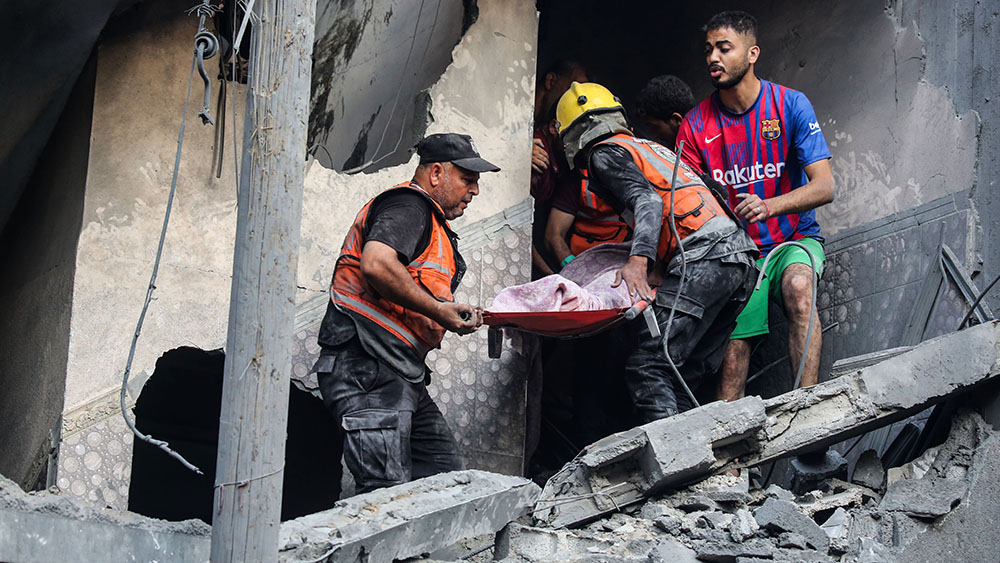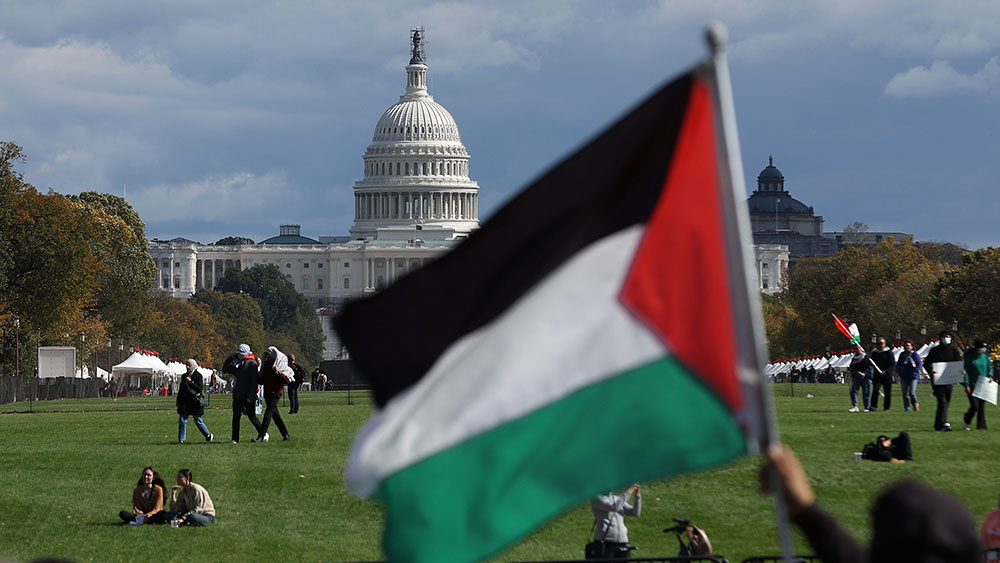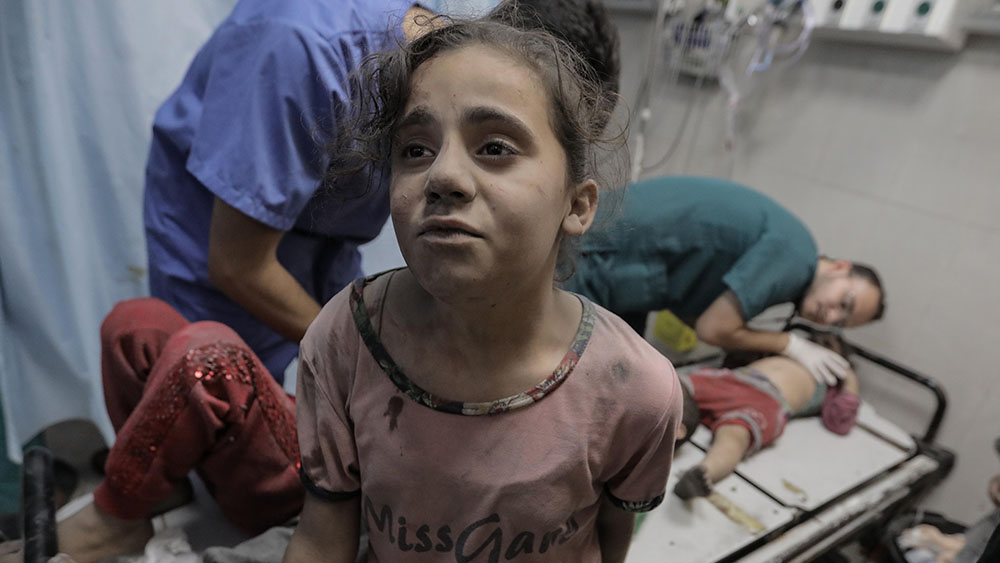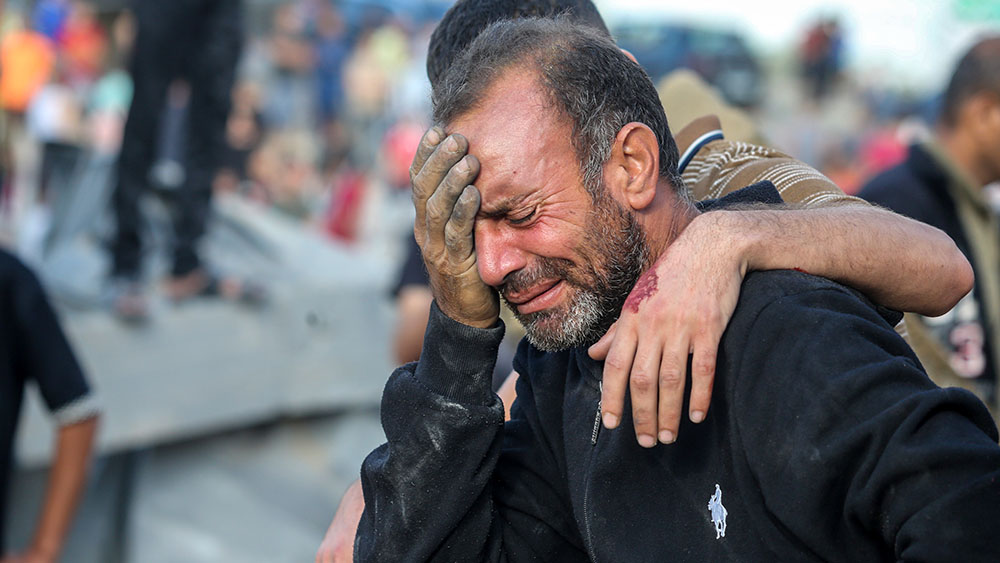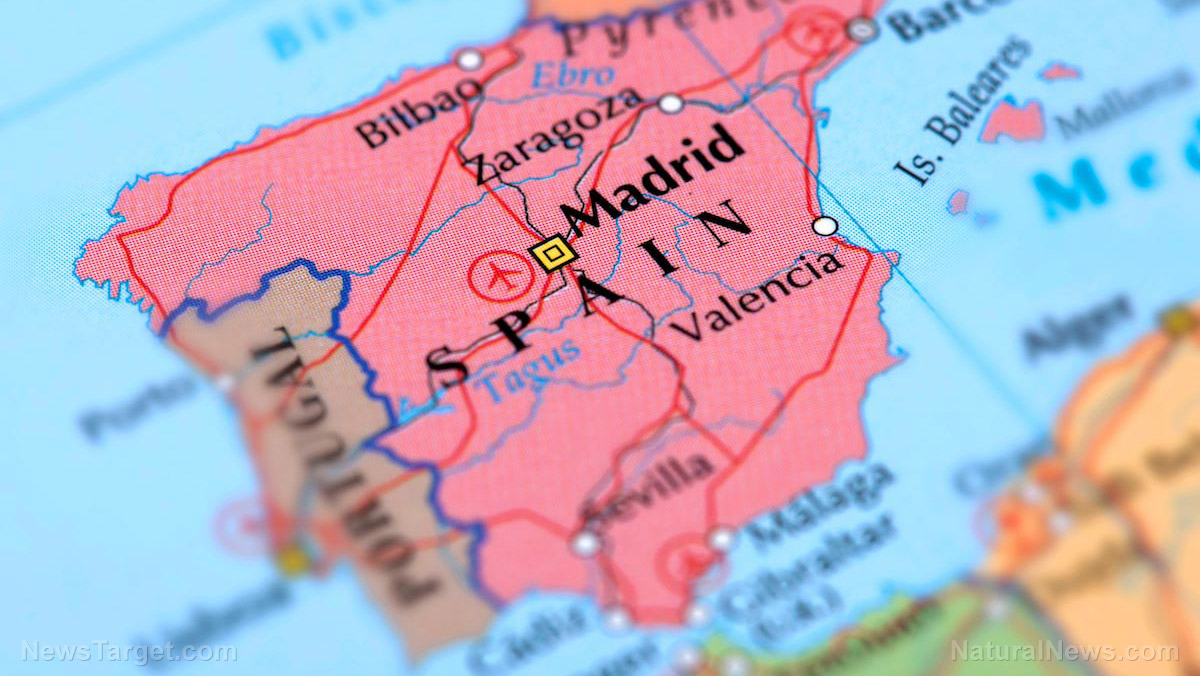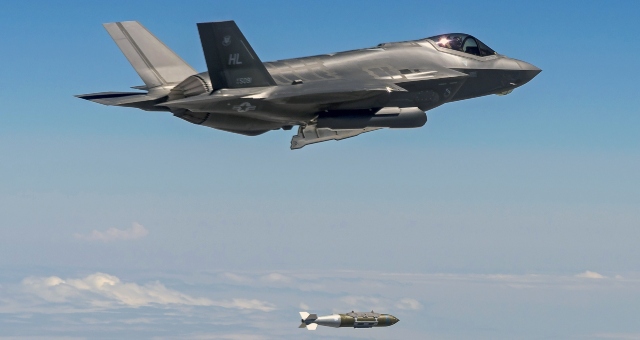U.S.-built floating pier in Gaza reopens after undergoing repairs that cost millions
06/11/2024 / By Belle Carter

The temporary pier that serves as the main entry point of humanitarian aid to Gaza reopened on Friday, June 7, following major repairs that cost American taxpayers tens of millions of dollars.
The pier built by the United States Armed Forces was first anchored to land on May 16 and started operations soon after. It was only operational for about a week before it was blown apart in high winds and heavy seas on May 25. (Related: U.S.-built Gaza pier transported to Israel for repairs after being heavily damaged by high waves, strong winds.)
The damaged section was reconnected to the beach in Gaza on Friday, June 7, after undergoing repairs at an Israeli port. Department of Defense officials who spoke with media outlets revealed that the pier had undergone at least $22 million in repairs at the Israeli port of Ashdod.
“The cost for repairs could rise to as much as $28 million,” one of the officials said.
On Saturday, June 8, about 1.1. million pounds (499,000 kilograms) of aid were already delivered via the pier, U.S. Central Command said in a statement. According to the agency, a total of 3.5 million pounds (1.58 million kilograms) of aid have been delivered since the pier had previously opened in mid-May.
The project hasn’t even lived up to its initial billing or its $320 million price tag when it was damaged and yet it has continued to acquire further costs from the American taxpayers’ pockets, critics commented.
“Lower-than-expected costs for contracted trucks, drivers, and commercial vessels, and the United Kingdom’s contribution of … a berthing vessel for our soldiers and sailors have lowered our cost,” Pentagon spokeswoman Sabrina Singh told reporters. “Just as a reminder, these are estimates and initial assessments and the cost could fluctuate depending on the length of the mission and future costs, an example of that being additional repairs.”
During the short period before it was damaged, the United Nations said it had transported 137 trucks of aid from the pier, the equivalent of 900 metric tons. According to UN aid agencies and other humanitarian groups, Gaza needs at least 500 to 600 trucks of humanitarian aid per day to sustain in the dire situation created by Israel’s genocidal war.
Meanwhile, on the same day that aid was delivered via the newly repaired pier, Israel mounted a heavy air and ground assault on the Nuseirat camp in central Gaza that rescued four hostages who Hamas had taken during the Oct. 7 assault. Video circulating online showed an Israel Defense Forces (IDF) helicopter taking off from the beach with the U.S. pier in the backdrop.
Two U.S. officials told CBS News that the U.S. pier was not used in the IDF operation. A U.S. official explained that the helicopter landed south of the facility on a beach but not within the cordoned area of the pier.
“The pier facility was not used in the operation to rescue hostages today in Gaza. An area south of the facility was used to return the hostages to Israel safely,” the official said. “Any such claim to the contrary is false. The temporary pier on the coast of Gaza was put in place for one purpose only, to help get more urgently needed lifesaving assistance into Gaza.”
IDF kills 200 in central Gaza attack
Intense assaults by the Israeli military accompanied that humanitarian aid, killing more than 200 people. Dozens of air raids hit the besieged territory on Saturday, particularly in Deir el-Balah and Nuseirat in central Gaza, homes west of the city of Rafah in the south and multiple areas in Gaza City to the north.
According to the Gaza Health Ministry, “large numbers” of killed and wounded were arriving at Al-Aqsa Martyrs Hospital, the majority of whom are children and women.
“Dozens of injured people are lying on the ground, and medical teams are trying to save them with the basic medical capabilities they have available,” the health ministry said, adding that it is short on medicine and food and that its main generator has stopped functioning due to a lack of fuel. Dr. Tanya Haj-Hassan, a pediatric intensive care doctor with Doctors Without Borders (MSF), described Al-Aqsa Hospital as a “complete bloodbath” and that it looked “like a slaughterhouse.”
Reporting from inside the full and overwhelmed hospital via a telephone call, Al Jazeera‘s Hind Khoudary said the situation is tense, with terrified people on the street not knowing where to turn.
“Explosions are happening every minute. Ambulances are transferring the wounded to the hospital where we are trapped. It’s chaos inside the hospital. There are children among the wounded,” she said.
Meanwhile, a health ministry spokesman earlier said there were still “a lot of” bodies and wounded people that remained on the streets.
Head over to Humanitarian.news for more stories about the deteriorating humanitarian situation in Gaza.
Watch the video below that talks about how Biden’s floating pier was such a waste despite the high cost spent.
This video is from the NewsClips channel on Brighteon.com.
More related stories:
Israel captures Rafah crossing, leaving 27 people dead and cutting vital lifeline of Palestinians.
Sources include:
Submit a correction >>
Tagged Under:
Al-Aqsa Hospital, big government, bloodbath, chaos, Doctors Without Borders, dod, floating pier, Gaza, Hamas, Holy War, humanitarian aid, IDF, Israel, Israel-Hamas war, Israel-Palestine war, national security, Nuseirat, Palestine, Pentagon, supply chain, taxpayers, terrorism, violence, World War III
This article may contain statements that reflect the opinion of the author
RECENT NEWS & ARTICLES
COPYRIGHT © 2017 WWIII NEWS

